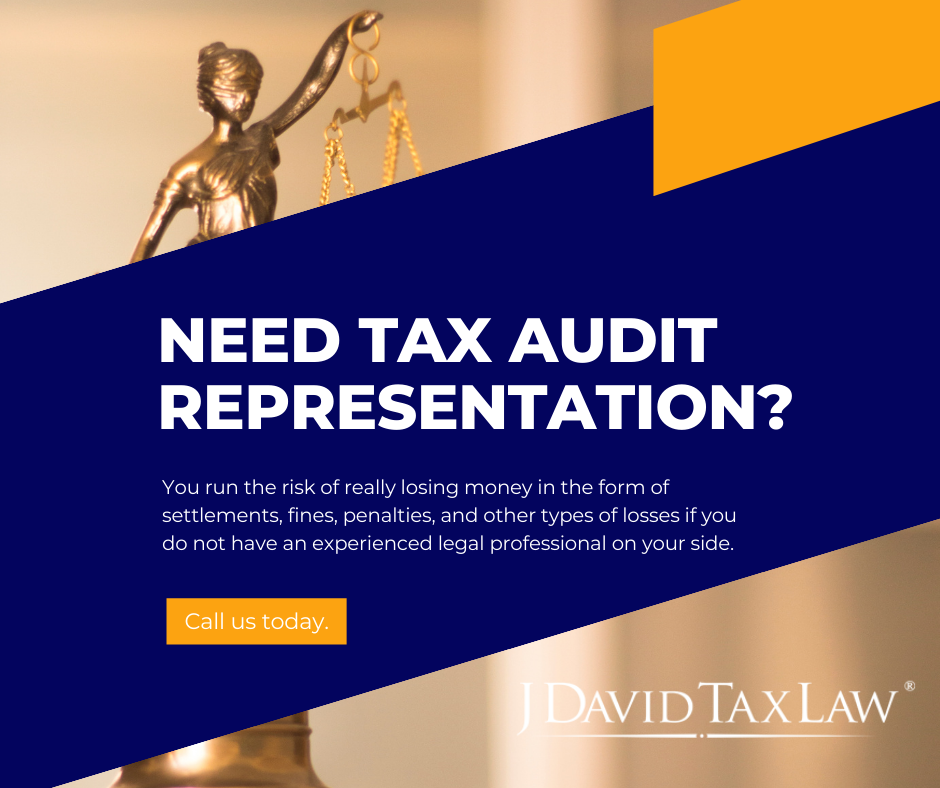While tax audits are often feared, they are an essential part of financial accountability. Whether you’re an individual taxpayer or a business owner, an audit by the Internal Revenue Service (IRS) or other tax authorities can be overwhelming. However, being well-prepared can transform a potentially stressful encounter into a manageable one.
Proper preparation not only streamlines the process but also significantly safeguards your credit status. It demonstrates your commitment to compliance and transparency, potentially mitigating any negative outcomes.
By keeping records and understanding your tax obligations, you can effectively go through the audit process. With the help of J. David Tax Law you can also challenge discrepancies and uphold your financial integrity.
Understanding Tax Audits
A tax audit is an examination of an individual’s or organization’s tax returns by a government agency to ensure that income and deductions are reported accurately. During an audit, tax officials review the taxpayer’s financial records and other pertinent documentation. This process will verify if the filed tax returns comply with the tax laws.
The most recent statistics on tax audits in the U.S. reveal that overall audit rates have been declining. For example, for the fiscal year 2022, the IRS audited about 0.25% of all individual tax returns, down from around 0.9% in the years 2010-2011. Moreover, high-income taxpayers continue to be a significant focus of IRS audits. The IRS aims to audit a certain percentage of returns annually from individuals with very high earnings. This strategy aims to ensure tax compliance among the wealthiest taxpayers.
Audits can be triggered for several reasons, and being selected does not always imply wrongdoing. Some of these grounds include the following:
Discrepancies between reported income and information from third parties (e.g., W-2s, 1099s).
Excessive deductions relative to income.
Frequent losses reported on a business schedule.
Participation in large or complex transactions.
Random selection as part of a sampling method used by tax authorities.
Preparation Strategies for a Tax Audit
Keeping financial records organized is crucial, as it speeds up the audit process and helps establish credibility with the auditor. Well-maintained records facilitate a quicker resolution and may lead to a more favorable outcome. Here are some strategies that you can apply in preparing for an audit proceeding:
Review Your Tax Return: Understand every item on your return, why it was claimed, and where the documentation supporting it is located.
Organize Documentation: Gather and organize all relevant documents, such as receipts, bills, employment documents, and investment statements.
Prepare Your Explanation: Be ready to explain how you calculated deductions or credits and why you were eligible for them.
Effective preparation can alleviate much of the stress associated with tax audits. It can protect both your finances and reputation.
Overview of the Audit Process from Start to Finish
The audit process begins with a notification from the tax authority, stating the years or items under review. It can be conducted through mail (correspondence audit), at an IRS office (office audit), or on-site (field audit).
The process involves presenting records and may include several rounds of questions and answers. It concludes when the auditor presents their findings. This may result in no changes, an adjustment (which might be agreed upon or contested), or a referral for criminal investigation if fraud is suspected.
When interacting with auditors, it’s essential to remain professional, prompt, and precise. Provide clear and direct answers to their questions, and only share information that is relevant to the audit. Avoid volunteering extra details or documents that were not requested, as this could complicate matters. Consulting with a tax professional from J. David Tax Law before and during the audit can help address all your tax matters.
Legal Rights and Responsibilities During an Audit
During an audit, you have the right to:
Understand why you are being audited.
Know what documentation you need to provide.
Have representation, by yourself or with the assistance of a tax professional. You are responsible for providing accurate and complete information and for responding to requests on time.
Post-Audit Actions
After the audit, review the findings and conclusions presented by the auditor. If you agree with the audit results, you will complete any necessary documentation and take steps to pay any amounts owed or receive refunds. If you disagree, you can appeal the decision.
If discrepancies or disputes arise from the audit findings:
Discuss these issues during the closing meeting with the auditor.
Request a formal review within the tax authority if initial discussions don’t resolve the issue.
Consider filing an appeal if the disagreement persists, noting that there might be a deadline for such actions.
To ensure ongoing compliance after a tax audit, it’s crucial to adapt your tax practices based on the insights gained during the audit process. Utilize the auditor’s feedback to enhance your record-keeping and reporting systems. This will provide guidance in meeting the required standards set by the IRS.
Additionally, maintaining regular consultations with tax professionals can keep you updated on current tax laws. It can significantly help in minimizing future audit risks and compliance issues.
Conclusion
Proactive financial management is vital in preventing tax audits and minimizing their impact. This involves regular reviews of your financial records and ensuring compliance with tax laws. By keeping your financial affairs in order, you reduce any discrepancies and errors that can lead to audits.
To ensure you are well-prepared and protected, consider consulting with J. David Tax Law. This firm can provide personalized advice and strategies to protect your credit status. Engaging with tax lawyers can make a difference in safeguarding your financial future. Book your consultation now at (888)342-9436 to learn more.
Frequently Asked Questions
What steps should be taken after a tax audit is completed?
Why is proactive financial management important in relation to tax audits?
How can a tax professional help during a tax audit?
What should you do if you disagree with the results of a tax audit?
This structured approach gives you the best chance to overturn unfavorable audit results. It ensures that your tax obligations are fair and accurately assessed.





















